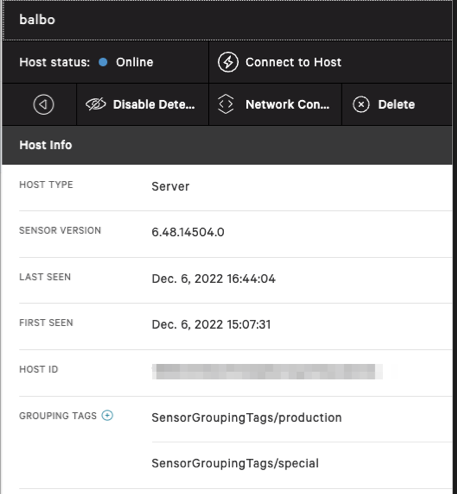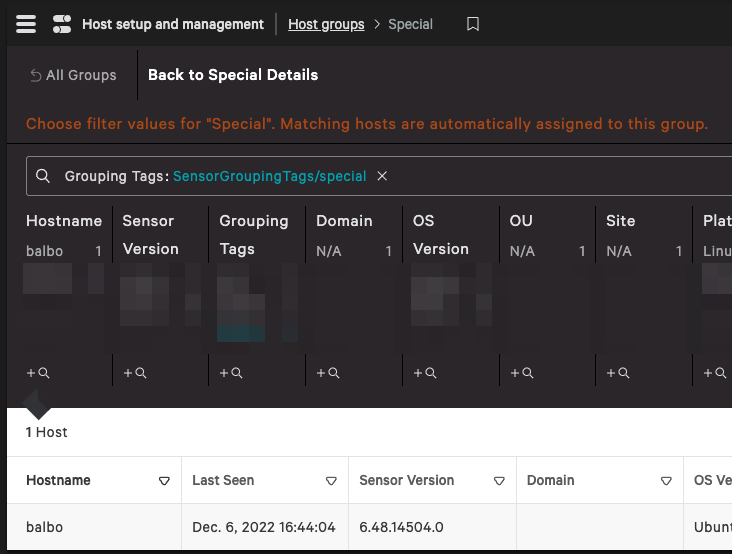This is a simple example script written as a python tool to apply CrowdStrike Falcon Sensor Grouping Tags to a host based on its hostname matching multiple regex patterns. This tool can apply multiple tags to a single host.
python3 falcon-tags.py -h
usage: falcon-tags.py [-h] [-j TAGSFILEPATH] [-x] [--verbose]
optional arguments:
-h, --help show this help message and exit
-j TAGSFILEPATH, --tagsfilepath TAGSFILEPATH
File location for json.tags
-x, --execute Execute command (requires sudo)
--verbose increase output verbosity
The tool will match the hostname to the tags.json file using regex patterns. In this example the hostname balbo will match three different regex patterns with labels: production, special, and special. Since the collection is a set[] we will only apply the special tag once.
{
"balbo": "production",
"foo?baz": "test",
"biz?baz": "smoke",
"bal*": "special",
"(bal)?bo.?": "special"
}In the screen (circa late - 2022) We can see the host in the UI has the applied "Falcon Sensor Grouping Tags"
Create a New Dynamic Group, then add the selected tags to this Group.
Apply any Falcon based policies (Protection, FW, USB, Update, etc..) to the host group and now you have dynamic policies based on regex matching of the hostname.
FalconPY can be used to update the similar tags called 'FalconGroupingTags' used in the API and stored on the SaaS. Either 'FalconGroupingTags' or 'SensorGroupingTags' can be used for filtering and creating dynamic host groups as they are both listed in 'GroupingTags'.
Specific applications and other tools may hold sorting information that may be useful in tagging hosts. Potential use cases include identifing individual hardware with dmidecode or applications installed using rpm or apt. Extending scripts and parsing the output of those tools could be enabled with jc a json oss common unix tool output parser.
This tool could be combined with scripts in Ansible, Salt, Chef or Puppet and other distributed execution systems to ensure full fleet deployment.



